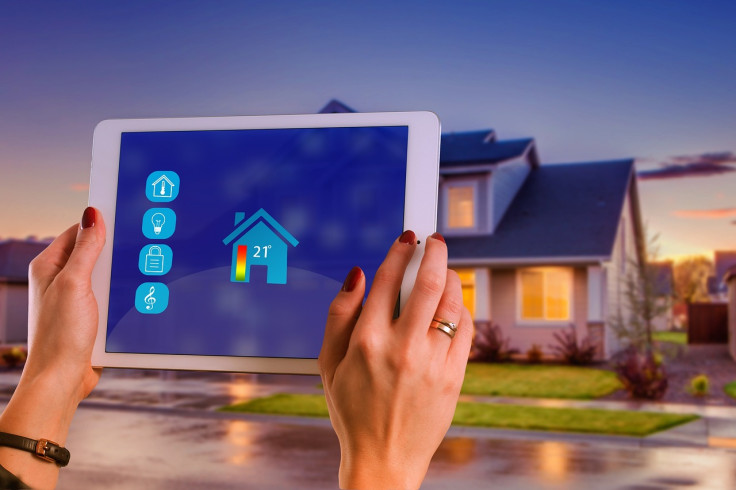The Rise Of Smart Homes: Security, Savings, And Self-Reliance
As of 2024, 39% of UK homeowners have installed smart devices in their homes

Smart home technology has continued as a growth industry in the UK over recent years. As of 2024, 39% of UK homeowners have installed smart devices in their homes and this is set to rise to 50.2% by 2027.
Smart home technology is becoming more and more prevalent in homes for a variety of reasons, from its capacity to make homes more secure to improving energy efficiency to simple convenience.
If the concept of the 'smart home' is new to you, you may be wondering how using this kind of tech could make life easier for you, or a loved one who's living with challenges that make independent living a little more challenging.
In this post, we'll look at some of the ways that smart technology can improve the quality of life at home.
Remote Control Over Everyday Tasks
Almost all smart home devices can be controlled via a mobile device such as a modern communication device or through voice commands via devices like Amazon Alexa and Google Nest speakers.
This feature makes independent living instantly easier, especially for the elderly and those with disabilities. Allowing you to take care of routine functions like turning lights on and off, adjusting the heating, and even setting robotic vacuums out on a circuit, all without having to physically move.
Furthermore, smart devices can even be controlled when you're not at home, which can be great for ensuring peace of mind when you've left the house and can't remember if something was turned off (or on!).
Add Resale Value To A Property
One of the lesser talked-about but still very significant ways that smart homes can benefit you is by adding resale value to a property.
With devices that enhance a home's security, safety, and capacity for a modern lifestyle, a smart home can also add a significant amount of value to a property.
One example of how home improvements can save you money is by installing solar panels to help generate electricity. Although they are a large investment up front, they will save you money on energy costs in the long run making it especially appealing for those who are over 55 and are interested in getting an equity release mortgage to help fund their smart home upgrades.
While there's a lot of potential for value-oriented home improvements, it's important to remember that some smart home tools will have more of an effect in this area than others.
Voice-command tech and virtual assistants, for example, don't tend to pass any value onto the buyer, whereas security systems and smart lights that slash energy bills can raise the asking price by a surprising amount.
Smart Homes Improve Security
Tragically, people with disabilities, the elderly, and other vulnerable people are at an increased risk of being targeted by thieves and other criminals. With this in mind, it's important for those who are struggling to live independently to have reliable security at home.
Smart home tech such as electric garage doors with advanced locking mechanisms, help to improve your home's security. With a range of smart security systems and surveillance equipment, promising greater peace of mind for both yourself and your loved ones.
Smart doors can provide audible cues to notify visually impaired people when their door has been opened, or if their home's security has been breached in some way.
Smart locks from companies like Nuki can also help to bolster home security by being linked to specific mobile devices, and giving you full access control.
This can be particularly helpful if you need to allow housekeepers, nurses, and other caregivers to enter a home within specific hours of the day.
Help Monitor People's Health
Aside from helping you with everyday tasks and household chores, smart homes can also help people with medical conditions become more self-reliant in the home, and enjoy a more independent way of life.
Devices such as smart pill dispensers and wearable health monitors will make it easy for people to monitor ongoing health conditions, reduce their dependency on medical appointments, and simplify the process by which they share information with their nurses, doctors, and other caregivers.
Aside from the range of benefits to people with physical health conditions, medically-aligned smart devices can also help to improve the quality of life for people suffering from neurodegenerative diseases such as Alzheimer's.
Dementia patients who are likely to forget to take essential medication can be assisted through the use of smart pill dispensers that use visual and audio cues, and location-tracking wearable tech can be useful for caregivers of at-home patients who might wander off accidentally.
Getting Started With Smart Home Technology
Whether you're looking to increase the value of your home or looking to make life easier for a loved one, we hope this post has given you an idea of how smart home tech can improve the quality of life for those around you.
Remember, this is just a small fraction of the benefits that a smart home can offer, and with new devices and applications being developed all the time, there's practically no end to the ways smart homes and the IoT can help people lead rich, fulfilling lives!
© Copyright IBTimes 2025. All rights reserved.




















